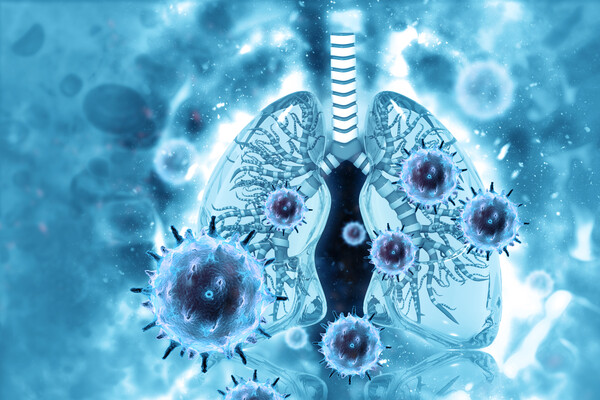When treating lung cancer, checking whether the patient has a genetic mutation and what type of mutation is getting more important, experts said.

Among non-small cell lung cancer (NSCLC) cases, which accounts for 85 percent of all lung cancer, only 21.7 percent of the patients have no active genetic mutation. This means that four out of five lung cancer have an active genetic mutation.
Treating them with a genetic mutation-targeted therapy could help the patients maintain a better quality of life with better therapeutic effects and fewer side effects.
In the past, even when a genetic mutation was confirmed, there was no therapy that could target the mutation.
However, in recent years, new targeted therapies addressing those genetic mutations are arriving in the lung cancer treatment market.
“If there is a specific gene mutation called A, using a targeted medicine that can attack the gene A can effectively treat the patient with fewer side effects, so, of course, it is important to know the genetic mutation accurately and treat it,” said Professor Hong Min-hee at Yonsei Cancer Center said in a YouTube channel.
Major genetic mutations in lung cancer include EGFR, KRAS, ALK, MET, ROS1, HER2, BRAF, RET, and NTRK.
According to Hong, 43.6 percent of Asian NSCLC patients have EGFR exon 19 deletion/L858R substitution mutation; 2.9 percent have EGFR exon 20 insertion mutation; 2.2 percent have other EGFR mutations; 2.8 percent have KRAS G12C mutation; 8.4 percent have other KRAS mutation; and 3.8 percent have ALK mutation.
Hong said NSCLC patients with eight mutations -- EGFR exon 20 insertion mutation, other EGFR mutation, KRAS G12C mutation, other KRAS mutation, ALK mutation, MET exon 14 mutation, ROS1 mutation, BRAF V600E mutation, RET mutation, NTRK mutation -- can be treated with respective targeted therapy.
“Patients with these mutations should use the right targeted therapy to treat cancer most effectively,” he said.
NSCLC treatment without confirming a genetic mutation includes chemotherapy or immunotherapy but targeted therapies customed to tackle genetic mutations show much superior treatment outcomes than chemotherapy or immunotherapy.
“Since cytotoxic anti-cancer drugs or immunotherapies are given regardless of patients’ personal traits, treatment response rates and effects are much lower,” Hong said. “Using therapies targeting a genetic mutation could maximize the patient’s survival rate.”
In particular, NSCLC patients with EGFR, ALK, and ROS1 mutations can see much better therapeutic effects with targeted therapy, rather than immunotherapy.
In patients with RET, MET, KRAS, and G12C mutations, 50-80 percent of patients treated with targeted therapy experience the reduction of cancer cells, versus only 20-30 percent of those treated with immunotherapy do so, Hong noted.

